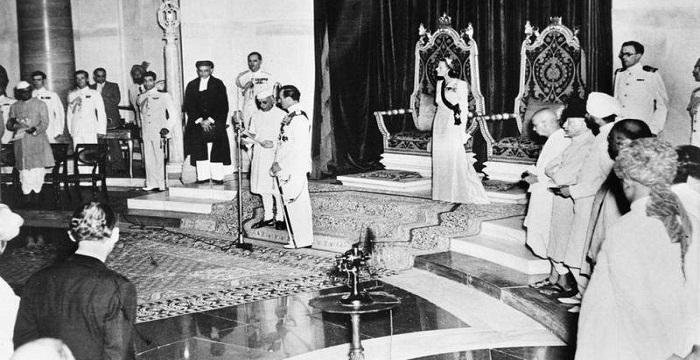Introduction
Every year, millions of aspirants across India appear for competitive exams (like UPSC Civil Services or JEE for engineering) with the dream of securing top positions in government services, engineering, medicine, management, law, and defence.
Among these, a few exams are considered the toughest in India because of their:
- Extensive syllabus covering multiple subjects.
- Very low success rate (often less than 1%).
- Multi-stage selection process including written tests, interviews, and skill assessments.
- High competition due to limited seats and massive participation.
Cracking these exams is not only a matter of knowledge but also requires mental resilience, consistency, and smart preparation strategies. Many of these exams are ranked among the hardest in the world, placing Indian students in a truly competitive global environment.
Why Are These Exams Considered the Toughest?
- Sheer competition: Lakhs of candidates compete for only a few thousand seats or posts.
- Unpredictability: The question pattern and difficulty level often change every year.
- Syllabus depth: Some exams cover almost everything from history, science, current affairs, aptitude, to professional knowledge.
- Lengthy process: Exams like UPSC take almost a full year to complete all stages.
- Psychological pressure: Success requires discipline, patience, and the ability to handle failures and setbacks.
List of Top 10 Toughest Exams in India 2025
Here is the complete list of the Top 10 Most Difficult Exams in India 2025 with details about eligibility, syllabus, exam pattern, and purpose.
- UPSC Civil Services Examination (CSE):
- The Union Public Service Commission (UPSC) CSE is the most prestigious and toughest exam in India.
- It recruits candidates for IAS, IPS, IFS, IRS, and other Central Services.
- With a success rate of less than 0.2%, it requires not just academic knowledge but also leadership, analytical thinking, and personality skills.
- Structure:
- Prelims: Two objective papers (General Studies & CSAT).
- Mains: Nine descriptive papers covering essay, GS papers, and optional subjects.
- Interview (Personality Test): Tests confidence, decision-making, and awareness.
- Exam Highlights:
- Level: National
- Mode: Offline
- Duration: Prelims – 2 hours per paper; Mains – 3 hours per paper
- Frequency: Annual
- Purpose: Recruitment into civil services (IAS, IPS, IFS, IRS, etc.)
- JEE Advanced:
- Joint Entrance Examination (JEE) Advanced is the gateway to IITs, IISc, and other top institutes.
- Only students who qualify JEE Main are eligible.
- The exam is famous for its complex, concept-based questions in Physics, Chemistry, and Mathematics.
- Exam Highlights:
- Level: National
- Mode: Online (Computer-Based)
- Duration: 3 hours
- Frequency: Twice a year
- Purpose: Admission to IITs and other premier engineering colleges
- GATE (Graduate Aptitude Test in Engineering):
- GATE is conducted jointly by IISc and IITs.
- It tests a candidate’s in-depth understanding of engineering and science subjects.
- GATE scores are used for Tech admissions, PSU jobs, and even scholarships abroad.
- Exam Highlights:
- Level: National
- Mode: Online
- Duration: 3 hours
- Frequency: Annual
- Purpose: Postgraduate studies & PSU recruitment (IOCL, GAIL, HPCL, etc.)
- CAT (Common Admission Test):
- CAT is the most competitive management entrance exam in India, conducted by the Indian Institutes of Management (IIMs).
- It is known for its time pressure and tricky logical reasoning questions.
- Exam Highlights:
- Level: National
- Mode: Online
- Duration: 2 hours
- Frequency: Annual
- Sections: Quantitative Aptitude, Logical Reasoning & DI, Verbal Ability & Reading Comprehension
- Purpose: Admission to IIMs and top B-schools for MBA/PGDM programs
- NDA (National Defence Academy Exam):
- Conducted by UPSC, NDA is the entry point for candidates aspiring to join the Army, Navy, and Air Force.
- It is a two-stage process – a written exam followed by the SSB Interview, which is considered one of the toughest personality and psychological assessments in India.
- Exam Highlights:
- Level: National
- Mode: Offline
- Duration: 2.5 hours per paper
- Frequency: Twice a year
- Purpose: Selection for Army, Navy, Air Force
- CLAT (Common Law Admission Test):
- CLAT is the toughest law entrance exam in India, conducted for admission to NLUs (National Law Universities).
- It tests legal aptitude, reasoning, and language skills.
- Exam Highlights:
- Level: National
- Mode: Offline (Pen-Paper)
- Duration: 2 hours
- Frequency: Annual
- Purpose: Admission to undergraduate and postgraduate law programs
- Chartered Accountant (CA) Exam:
- The CA Exam, conducted by the Institute of Chartered Accountants of India (ICAI), is one of the most challenging professional exams.
- It has three stages: Foundation, Intermediate, and Final.
- The overall pass percentage is usually less than 10%.
- Exam Highlights:
- Level: National
- Mode: Online
- Duration: 3 hours (per paper)
- Frequency: Twice a year
- Purpose: To become a Certified Chartered Accountant
- UGC NET (National Eligibility Test):
- UGC NET, conducted by NTA, determines eligibility for Assistant Professor and Junior Research Fellowship (JRF) in Indian universities.
- It is tough because it combines both research and teaching aptitude.
- Exam Highlights:
- Level: National
- Mode: Online
- Duration: 3 hours
- Frequency: Twice a year
- Purpose: Lectureship & JRF eligibility
- NEET (National Eligibility cum Entrance Test):
- NEET is the only exam for medical aspirants in India for admission to MBBS, BDS, AYUSH, and veterinary courses.
- With 20+ lakh aspirants and only about 1.5 lakh MBBS seats, competition is extremely tough.
- Exam Highlights:
- Level: National
- Mode: Offline
- Duration: 3 hours
- Frequency: Annual
- Subjects: Physics, Chemistry, Biology (Botany + Zoology)
- Purpose: Admission to medical colleges in India
- NID (National Institute of Design) Entrance Exam:
- The NID Design Aptitude Test (DAT) is for admission to design programs at NID campuses.
- It evaluates creativity, innovation, and problem-solving ability.
- Exam Highlights:
- Level: National
- Mode: Offline
- Frequency: Annual
- Stages: Prelims + Mains
- Purpose: Admission to UG & PG Design programs
Comparison Table: Top 10 Toughest Exams in India 2025
| Exam | Level | Mode | Frequency | Duration | Purpose |
| UPSC CSE | National | Offline | Annual | 2-3 hrs/paper | Civil Services Recruitment |
| JEE Advanced | National | Online | Twice a year | 3 hrs | IIT Admissions |
| GATE | National | Online | Annual | 3 hrs | M.Tech + PSU Jobs |
| CAT | National | Online | Annual | 2 hrs | MBA Admissions |
| NDA | National | Offline | Twice a year | 2.5 hrs/paper | Army/Navy/Air Force |
| CLAT | National | Offline | Annual | 2 hrs | Law Admissions |
| CA | National | Online | Twice a year | 3 hrs | Chartered Accountant Qualification |
| UGC NET | National | Online | Twice a year | 3 hrs | Lecturer/JRF |
| NEET | National | Offline | Annual | 3 hrs | Medical Admissions |
| NID DAT | National | Offline | Annual | Varies | Design Admissions |
FAQs
Q1. Which is the toughest exam in India?
UPSC Civil Services Examination is considered the toughest due to its vast syllabus, long process, and low success rate.
Q2. How many students apply for UPSC every year?
Around 10–12 lakh candidates apply annually, but only 700–1000 finally get selected.
Q3. Is JEE Advanced tougher than NEET?
Both are tough, but JEE Advanced focuses on problem-solving in Physics, Chemistry, and Maths, while NEET tests memorization + application in Biology and other sciences.
Q4. What is the success rate of CA exams?
On average, less than 10% of candidates clear all three levels and qualify as Chartered Accountants.
Q5. Can an average student crack UPSC?
Yes, with consistent preparation, strategy, and practice, even average students can crack UPSC. Many toppers were not top rankers in school/college.
Q6. Is CAT tougher than GATE?
CAT tests aptitude under time pressure, while GATE requires subject expertise. Difficulty depends on the student’s background.
Q7.s CLAT exam only for law?
Yes, CLAT is specifically for admission to UG and PG law programs in National Law Universities.
Q8. What is a good score in NEET?
A score above 650+ is usually considered very competitive for admission into top government MBBS colleges.
Q9. How many times is UGC NET conducted in a year?
UGC NET is conducted twice every year by NTA.
Q10. Which exam gives the highest salary in India?
UPSC Civil Services, CAT (leading to IIM placements), and CA are among the exams leading to the highest-paying careers.





